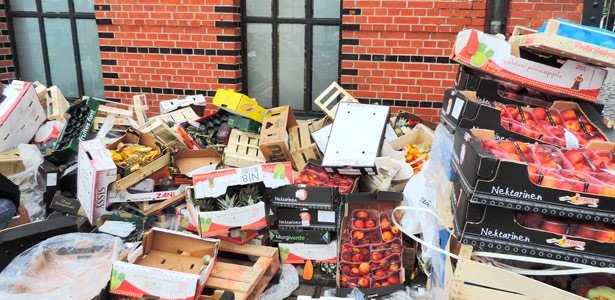As of this month France has banned food waste in supermarkets, making it now illegal to throw away unsought food. Unwanted food must be sent to charities or food banks, otherwise supermarkets will incur fines up to €75 000 (R1364234.64).
This decision came about after much pressure from anti-poverty organistions. The final decision was unanimous after a campaign was led by Courbevoie councillor Arash Derambarsh, who intends to further this concept to the rest of the EU. Let’s hope he will be successful because the notion of donating unsold food feels like the most obvious move in the books.
What is a food bank?
Let’s define a food bank though as the concept is still fairly new. The clever name pertains to non-profit organisations that distribute food to those who financially struggle to feed themselves. The food bank acts as a ‘wholesaler’ and will distribute the food to government or non-profit organisations such as soup-kitchens, homeless shelters and so on.
Food banks are a success story in the UK, the number of people using them rising by 99% in the last 7 years. Clearly it’s a highly successful initiative and that is why South Africa took the leap in 2009, opening its first food bank in Cape Town. And more are now scattered around the country receiving unsold food from supermarkets and farms, creating a constant food flow to the poor. France has just proven the necessity of food donations and the possibility of putting laws in place to facilitate distribution and saving of food. Although SA currently does not have such laws, local supermarkets should still be acting with such laws in mind.
Food donations in SA
Food Bank South Africa list 3 supermarket chains on their site that supply to them: Pick n Pay, Shoprite and Cambridge Food. Where is Woolworths? At a Woollies I visit regularly, I asked a shop assistant what happens to their food once it has passed the sell-by date. She explained that the food gets sold at a 50% discount to Woolworths employees. I then asked what happens to the food that does not get sold. She then said that everything gets sold… ‘people fight over that food’ she said with a giggle.
Woolworths told Food24 in a statement ‘As an ongoing initiative Woolworths donates surplus food which would otherwise go to landfill from stores to charities. In FY2015 we donated food to the value of R490 million’. So although they might not be donating directly to Food Bank SA, they are donating food to charities none the less.
Pick n Pay told Food24 ‘Pick n Pay donates almost 1 000 tonnes of food per year to Food Bank SA and similar charities to help feed the needy. This is food which within its code dates (use-by) dates. It is illegal to give food outside of its code dates. Pick n Pay would be happy to engage with government and others on sensible steps to ensure that more good food can go to the needy rather than be wasted’.
Food24 spoke to the general manager at Spar on Kloof Street, Cape Town and he explained that Spar too donates food to charities. This particular Spar takes all food off shelves that is due to pass its sell-by date the following morning, and donates it to the Haven Night Shelter near by. He explained that even though each Spar has different ownership, there is an overall policy of Spar‘s that if food is edible, it cannot be thrown in the bin. Different Spars will donate to different charities depending on location and discretion of the owner.
Should there be stricter regulations?
Pick n Pay, Woolworths and Spar clearly have efficient systems in place to avoid food waste but without doing some investigative work, no one would know what happens to leftover food in less prominent supermarkets. With around 12 million people going to bed hungry in SA, the need for food donations and individual mindfulness of food waste is a no brainer. But Since South Africa does not have enforceable laws in place to ensure supermarkets spare their food, there is no guarantee that they have systems in place like these larger chains, and smaller grocery stores are able to go under the radar.
In a country with such high levels of poverty, regulations like that in France can only be beneficial. This coupled with individual consciousness of food waste would certainly aid in reducing the extremely high number of hungry South Africans.
We all love food, so let’s look after it, save it and support supermarkets that encourage the sparing of this necessity.

